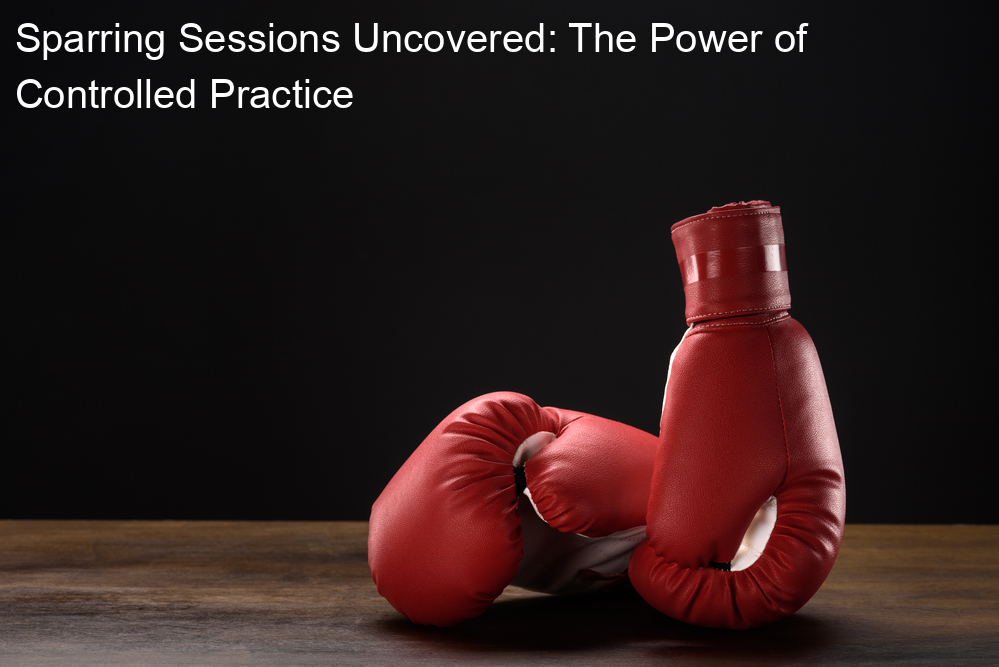
Introduction to Boxing and Cardiovascular Health
Welcome to our comprehensive guide on boxing and cardiovascular health. In this section, we will introduce you to the basics of boxing and explore the concept of cardiovascular health. We aim to provide you with clear and informative content, suitable for anyone interested in improving their health and fitness through boxing.
- Understanding the basics of boxing
- Exploring the concept of cardiovascular health
Boxing is a popular sport that involves two participants fighting each other with their fists. But it’s not just about throwing punches. Boxing requires a high level of physical fitness, including strength, speed, agility, hand-eye coordination, endurance, nerve, and power. It’s a full-body workout that engages every muscle group in your body, making it an excellent choice for overall fitness and health.
Cardiovascular health refers to the health of your heart and blood vessels, which work together to supply your body with the oxygen and nutrients it needs to function correctly. Regular physical activity, like boxing, can help improve your cardiovascular health by strengthening your heart and lowering your risk of heart disease. It can also help control your weight, reduce blood pressure and cholesterol, and improve mental health.
Now that we’ve covered the basics, let’s delve deeper into the impact of boxing on heart health, debunk some common myths about boxing and cardio, and provide you with a practical guide on using boxing for cardio health. So, lace up your gloves and let’s get started!
Impact of Boxing on Heart Health
Boxing is more than just a sport or a form of self-defense. It’s a full-body workout that can significantly improve your heart health. Let’s delve into some scientific studies that shed light on the impact of boxing on cardiovascular health.
Scientific Studies on Boxing and Cardio Health
There have been numerous studies conducted to understand the connection between boxing and heart health. Two of these studies are particularly noteworthy.
- Study 1: Boxing for Cardio Health
- Study 2: Cardiovascular Benefits of Boxing
This study, conducted by a team of sports scientists, found that boxing can be an effective way to improve cardiovascular health. The study involved a group of individuals who participated in boxing workouts for six weeks. The results showed a significant improvement in their heart rate and blood pressure levels. The participants also reported feeling more energetic and healthier overall. The researchers concluded that boxing could be a beneficial addition to a regular exercise routine for those looking to improve their heart health.
In another study, the cardiovascular benefits of boxing were examined in detail. This research involved professional boxers and measured their heart health over an extended period of regular training. The findings were impressive. The boxers had lower resting heart rates and better cardiovascular endurance compared to non-athletes of the same age group. This study provides strong evidence that boxing can offer substantial benefits for heart health.
In conclusion, scientific studies indicate that boxing can have a positive impact on heart health. It can help lower heart rate, improve blood pressure, and boost cardiovascular endurance. So, if you’re looking for a fun and effective way to improve your heart health, boxing might be worth considering.
Real-life Examples of Boxing’s Impact on Cardio Health
Let’s delve into some real-life examples to understand how boxing can significantly impact cardiovascular health. These examples will provide a clearer picture of how boxing, as a sport, can enhance heart health, whether you are a professional or an amateur.
- Example 1: Professional Boxer’s Cardio Health
- Example 2: Amateur Boxer’s Cardio Health
Consider the case of a professional boxer, who we’ll call Boxer A. Boxer A has been in the sport for over a decade. He trains for about 4-5 hours a day, which includes a mix of high-intensity boxing drills, strength training, and cardio exercises. Over the years, Boxer A has maintained a resting heart rate of around 60 beats per minute, which is significantly lower than the average adult’s heart rate of 72 beats per minute. This lower heart rate is a clear indication of excellent cardiovascular health, as the heart doesn’t have to work as hard to pump blood.
Now, let’s look at an amateur boxer, Boxer B. Boxer B started boxing as a hobby and trains for about 1-2 hours a day, 3-4 times a week. Even with this less intense training schedule, Boxer B has seen significant improvements in his cardiovascular health. His resting heart rate has dropped from 80 beats per minute to a healthier 70 beats per minute in just six months. This improvement shows that even amateur boxing can have a positive impact on heart health.
In conclusion, these real-life examples demonstrate that boxing, whether done professionally or as a hobby, can greatly improve cardiovascular health. It’s a sport that demands a lot from the heart, and in return, it strengthens and conditions it, leading to a healthier and more robust cardiovascular system.
Myths about Boxing and Cardio
There are many misconceptions about boxing and its impact on cardiovascular health. Let’s debunk some of these myths and shed light on the truth.
Boxing Myths Debunked
- Myth 1: Boxing is bad for the heart
- Myth 2: Boxing does not contribute to cardio health
Contrary to popular belief, boxing is not bad for the heart. In fact, it can be quite beneficial. Boxing is a high-intensity workout that can help strengthen the heart and improve cardiovascular health. It increases heart rate, which helps to pump blood more efficiently throughout the body. This can lead to a healthier heart and lower risk of heart disease.
This is another myth that needs to be debunked. Boxing is a great way to improve cardiovascular health. It involves a lot of movement and physical exertion, which can help to increase heart rate and improve blood circulation. Regular boxing workouts can help to strengthen the heart, improve lung capacity, and reduce the risk of cardiovascular diseases.
Remember, it’s important to consult with a healthcare professional before starting any new exercise regimen, especially if you have any pre-existing health conditions. Boxing can be a great way to improve cardiovascular health, but it’s important to do it safely and responsibly.
Facts about Boxing and Cardiovascular Health
Boxing is not just a sport or a form of self-defense; it’s a complete workout that benefits your heart and overall cardiovascular health. Let’s explore some facts about how boxing can enhance heart health.
Boxing Facts for Heart Health
- Fact 1: Boxing can improve heart health
- Fact 2: Boxing can reduce the risk of heart disease
Boxing is a high-intensity workout that gets your heart pumping. This increased heart rate during a boxing session helps to strengthen your heart muscles. When your heart muscles are strong, they can pump blood more efficiently throughout your body, supplying your organs and tissues with the oxygen they need. Regular boxing can therefore improve your heart health and overall cardiovascular fitness.
Boxing is an excellent way to burn calories and reduce body fat. High body fat is a risk factor for heart disease. By helping you maintain a healthy weight, boxing can reduce your risk of heart disease. Furthermore, boxing can help lower blood pressure and cholesterol levels, which are key factors in heart disease. So, not only does boxing make your heart stronger, but it also helps to keep it disease-free.
Boxing is more than just throwing punches. It’s a full-body workout that engages multiple muscle groups, increases stamina, and boosts cardiovascular health. So, lace up your gloves and get ready to jab, hook, and uppercut your way to a healthier heart!
Boxing for Cardio Health: A Guide
Boxing is not only a sport but also an excellent way to improve your cardiovascular health. This guide will help you get started on your journey to better heart health through boxing.
Getting Started with Boxing for Cardio Health
Before you start throwing punches, there are a few things you need to know. Let’s take a look at how to choose the right boxing gym and understand the basics of boxing training.
- Choosing the right boxing gym
- Understanding the basics of boxing training
Finding the right gym is the first step towards your boxing journey. Look for a gym with qualified trainers who can guide you through the basics and help you progress at your own pace. The gym should also have proper equipment and safety measures in place. Remember, a good gym isn’t just about the facilities, but also about the community and support you receive.
Boxing is more than just punching. It involves footwork, defense, and strategy. As a beginner, you’ll start with basic punches like the jab, cross, hook, and uppercut. You’ll also learn defensive moves and how to move around the ring. Boxing workouts typically include a mix of bag work, shadow boxing, and conditioning exercises to improve your strength and stamina. It’s important to take it slow and focus on learning the correct technique to avoid injuries.
Boxing for cardio health is a journey, not a destination. It’s about consistent effort and gradual improvement. So, lace up your gloves, step into the ring, and start working towards a healthier heart!
Advanced Boxing Techniques for Cardio Health
Boxing is not just about strength and speed; it’s also about endurance and cardiovascular health. To maximize the benefits of boxing for cardio health, it’s important to incorporate advanced techniques into your routine. Here are two techniques that you can try:
- Technique 1: High-intensity boxing drills
- Technique 2: Long-duration boxing workouts
High-intensity boxing drills are designed to push your heart rate to its maximum. These drills typically involve short bursts of intense activity, followed by short periods of rest. For example, you might spend one minute throwing as many punches as you can, then rest for 30 seconds before repeating the drill.
According to a study by the American Council on Exercise, high-intensity interval training (HIIT) can burn up to 30% more calories than other types of exercise. This makes high-intensity boxing drills an excellent choice for improving cardio health.
Long-duration boxing workouts, on the other hand, focus on maintaining a steady pace over a longer period of time. This could involve shadow boxing, hitting a heavy bag, or sparring with a partner for an extended session.
These workouts are great for building endurance and improving heart health. In fact, a study published in the Journal of Sports Sciences found that long-duration boxing workouts can significantly improve cardiovascular fitness.
Remember, the key to improving cardio health through boxing is consistency. Whether you choose high-intensity drills, long-duration workouts, or a combination of both, make sure to stick with your routine and push yourself to improve over time.
| Technique | Description | Benefits |
|---|---|---|
| High-intensity boxing drills | Short bursts of intense activity followed by short rest periods | Burns more calories, improves cardio health |
| Long-duration boxing workouts | Steady pace over a longer period of time | Builds endurance, improves heart health |
Conclusion: Cardio Health and Boxing
In this article, we have explored the relationship between boxing and cardiovascular health. Let’s take a moment to recap and share some final thoughts on this important topic.
- Recap of boxing’s impact on heart health
- Final thoughts on the benefits of boxing for cardio health
Boxing is a high-intensity sport that requires strength, speed, and endurance. It’s not just about throwing punches; it’s a full-body workout that can significantly improve your heart health. By increasing your heart rate and pushing your body to its limits, boxing can help strengthen your heart, lower your blood pressure, and improve your overall cardiovascular health.
Boxing is more than just a sport or a way to defend yourself. It’s a powerful tool for improving your cardiovascular health. Whether you’re a professional boxer or just someone looking for a new way to stay fit, boxing can provide a fun and challenging way to improve your heart health. Remember, a healthy heart is a happy heart!
Boxing is not just about strength and skill, but also about endurance and heart health. It’s a sport that not only keeps you fit but also helps you maintain a healthy heart. So, put on your gloves and step into the ring. Your heart will thank you!






